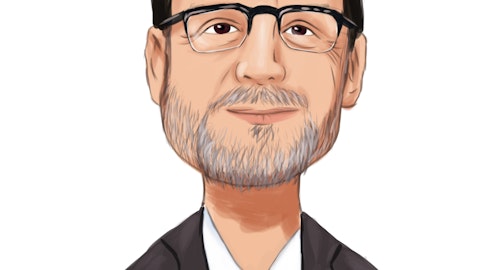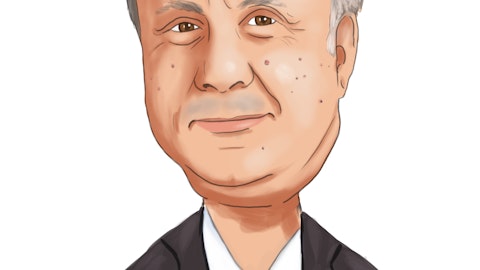Mark Hughes: Mike, the Federal Home Loan Bank strategy you’ve used has been seemingly very successful. When does that taper? What’s the impact of potential movement in that over the next 6 to 12 months?
Michael Paquette: So that trade is probably going to end in the third, maybe fourth quarter of this year. And the reason for that is that the CLOs track LIBOR today that will change when LIBOR goes away July 1 and the Federal Home Loan Bank borrowings are done at SOFR. And it’s the difference between those 2 rates that’s helping us with the arbitrage today. So again, that’s going to race as the year goes. To put it into perspective with respect to our activities in 2022, we had about a $6.3 million net investment impact increase as a result of that trade and that is just the yield on the additional CLOs. But also going the other way was $3 million worth of interest. So that trade had a $3.3 million pretax benefit to us in 2022 and we’ll have to wait to see what that effect is going to be into 2023. But we’ll continue to have some benefit from that but it will be dwindling as the year goes by.
Mark Hughes: Okay. That’s a pretty modest number, I would think. And then on the expense ratio anything — commissions were up a little bit but your growth has been pretty strong. So that all makes sense. Expense ratio overall, though, any thoughts about 2023.
Michael Paquette: So keep in mind that the fourth quarter expense ratio is up a little bit and that’s largely because of the success we had with net investment income and the development that we took. So that meant that we had to adjust some compensation accruals and that adjustment related to the entire year. So fourth quarter is a little bit of an anomaly based on the additional revenue that we saw. Going into next year, Kathy and I are doing everything that we can to hold the line on our fixed expenses. As you know, the variable expenses are largely outside of our control because those vary with our premium and can’t be avoided. There’s probably not — we can’t make the significant splash in a reduction to the fixed expenses as we have been able to accomplish since the first quarter of 2021 but the continued premium growth and the catching up of the earned to where the written is will continue to benefit that ratio to the extent that we’re successful in holding to our fixed expenses.
Mark Hughes: Can you say roughly what the comp expense the accrual catch-up was? What that impact was in the fourth quarter?
Michael Paquette: It’s tough for me to say we’re talking short term, long term, this, that but it was a few million dollars, let’s say $3 million.
Mark Hughes: Okay. That sort of makes sense compared to your recent trends.
Operator: This does conclude the question-and-answer session of today’s program. I’d like to hand the program back to Kathy Antonello for any further remarks.
Katherine Antonello: So, thank you all for joining us this morning. I look forward to meeting with you again in April and thank you, Jonathan. Have a great weekend.
Operator: Thank you. And thank you, ladies and gentlemen, for your participation in today’s conference. This does conclude the program. You may now disconnect. Good day.
Follow Employers Holdings Inc. (NYSE:EIG)
Follow Employers Holdings Inc. (NYSE:EIG)
Receive real-time insider trading and news alerts



